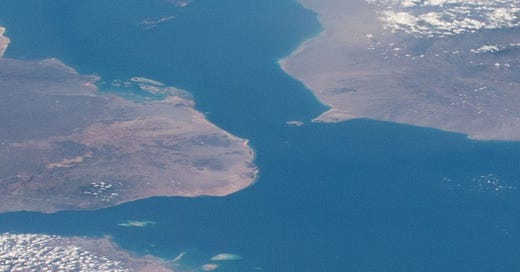This week, a 200 meter-long cargo ship was attacked and sunk in the Red Sea. The ship was flying under the flag of Liberia - the 2nd most frequently used flag of convenience, after Panama - and was being operated by 25 men working for a Greek shipping firm. 3 were killed and 10 are still missing. The ship was bound for Israel.
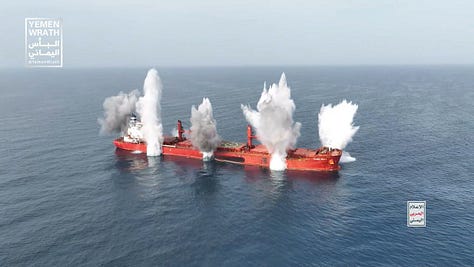
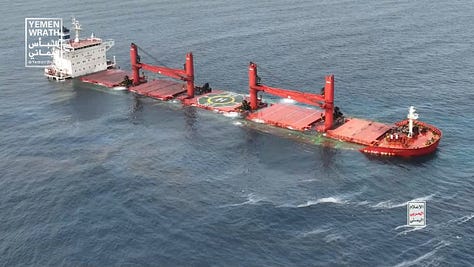
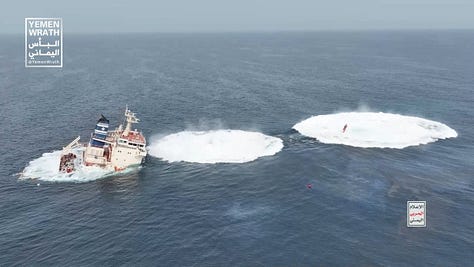
The Houthis, a Yemeni paramilitary group, claimed the attack as their own on Wednesday morning. Fighting a civil war against the government of Yemen for over a decade, the Houthis began attacking bottlenecked cargo ships off the Yemeni coast in 2023.
The Red Sea meets the Gulf of Aden at the Bab el-Mandab Strait, a chokepoint where the Asian and African continents are separated by just 20 miles. 13% of global trade ($1 trillion+) passes through the strait every year, and predictably, this funneled waterway has become a target point for the Iran-backed Houthis.
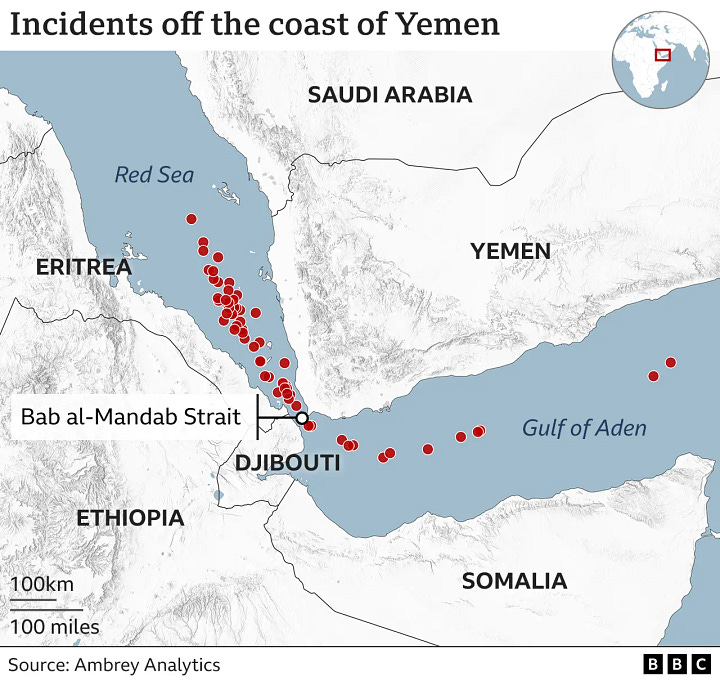
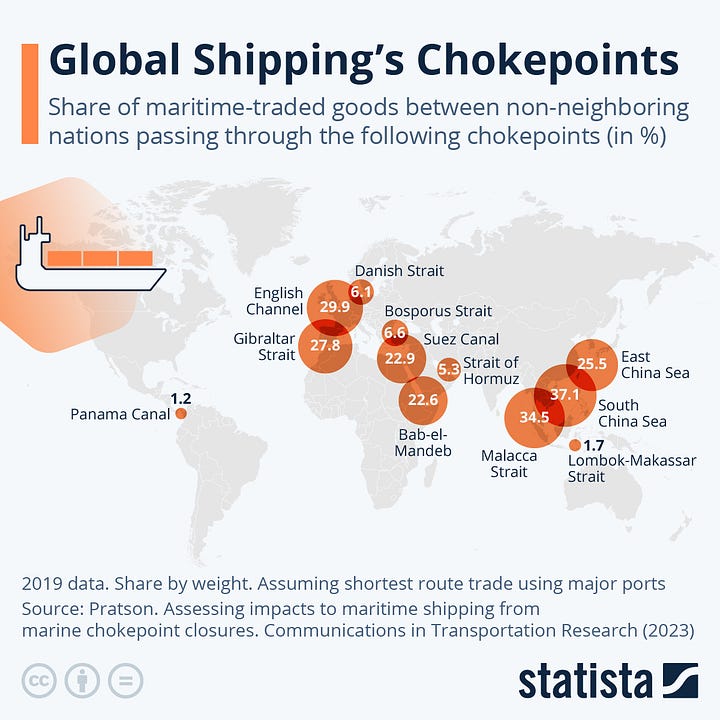
The Bab el-Mandab, which means Gate of Tears in Arabic, has a decent-sized, shared military presence. That’s why smaller groups of pirates wait to attack ships until they’re in the open ocean and away from the Djiboutian, Eritrean, Yemeni, and Somalian coast guards. It’s now common for ships to also have their own armed security on board.
The Houthi maritime disruptions ramped up in November of 2023, following October 7th and the outbreak of the war in Gaza. After initially attempting to disturb the passage of ships affiliated with Israel, the attacks became more widespread. The Yemeni rebel group eventually shifted their aggression toward US and other NATO-flagged ships - a response to US and UK bombings of Houthi hideouts in Yemen.
The first wave of 2023/2024 Houthi shipping attacks caused a 1.3% disruption in global trade for several months. Thousands of ships began avoiding the Bab el-Mandab Strait, opting to go around the southern tip of Africa instead, adding nearly 10,000 miles to their journey.
A new wave of attacks is now underway. Wednesday’s sinking of the Eternity C, was the 2nd such attack in less than a week, reviving questions around territorial waters and whose job it is to protect the Gate of Tears.
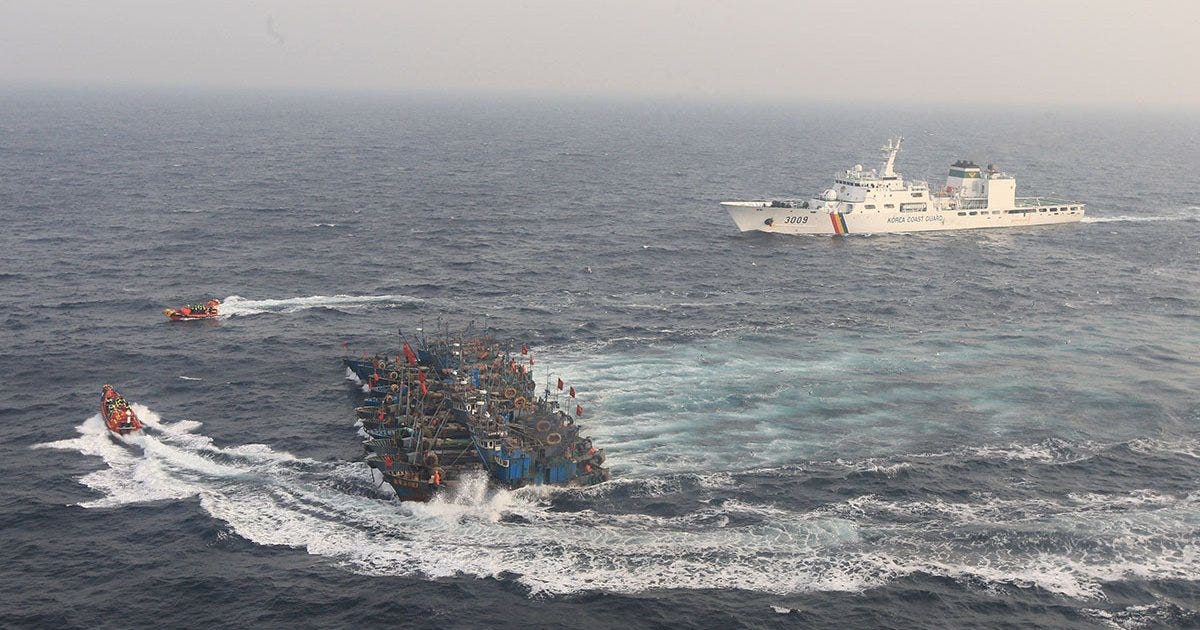
Those questions are similar to the ones that have long been asked by fisherman living 3,000 miles to the west. For years, China has illegally fished and over-fished the waters off the coast of West Africa. Fish populations have plummeted there as a result, denting both the local ecosystems and local economies.
And many of those West African countries, much like the countries around the Bab el-Mandab Strait, don’t have the resources to properly police their territorial waters. Coast guards and navies are expensive to run and tend to be the last military apparatus that a government funds.
Until the strait’s security is secured, shipping insurance in the Red Sea is likely to remain sky-high: Insurance rates have doubled since Wednesday.

